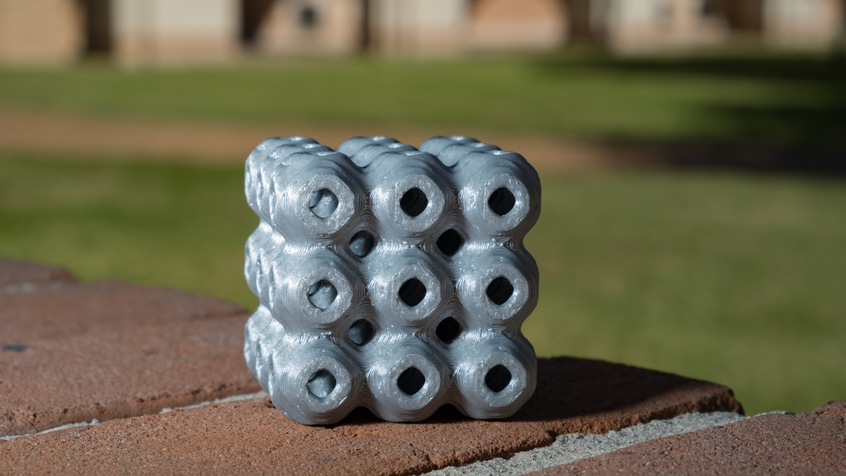Researchers at Rice University in Houston, Texas, have used 3D printers to create structures known as “schwarzites” that until now have only been theorised about.
Schwarzites were proposed by German scientist Hermann Schwarz in the 1880s. They are 3D lattices with repeating patterns that look similar to honeycombs.
A study, published in science journal Advanced Materials, describes how a computer algorithm was used to create small porous blocks that can support large weights.
Researchers say that if developed on a larger scale, a single schwarzite block could be used as the structure for an entire building.

Image courtesy of Rice University/Brandon Martin
Chandra Sekhar Tiwary, a Rice University postdoctoral researcher, said: “The geometries of schwarzites are really complex; everything is curved, the internal surfaces have concave curvatures and the morphologies are very interesting.
“The theory shows that at the atomic scale, these materials can be very strong. It turns out that making the geometry bigger with polymer gives us a material with a high load-bearing capacity.”
The team believe that schwarzites could also be used during the manufacturing of cars and aircraft, and also on a micro-scale, for battery components and electronic devices.
The study says the next step will be to make the blocks lighter and to refine the structure’s surfaces with higher-resolution printers.
Beyond that, the team want to 3D-print schwarzites on a larger scale using metallic and ceramic materials.
Rice University researchers worked with the São Paulo Research Foundation, the Air Force Office of Scientific Research and the State University of Campinas on the project.
Top image courtesy of Rice University/Jeff Fitlow










